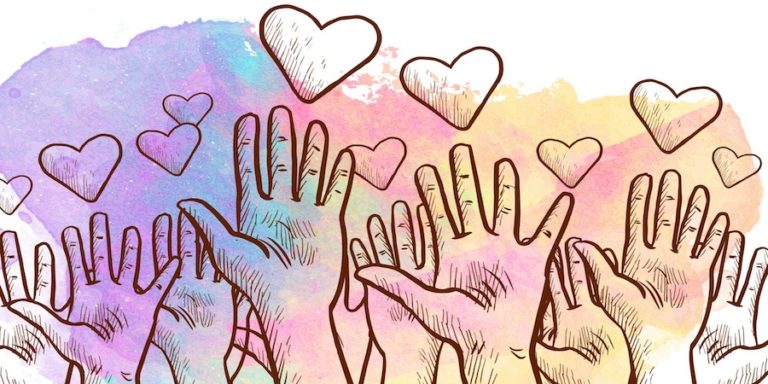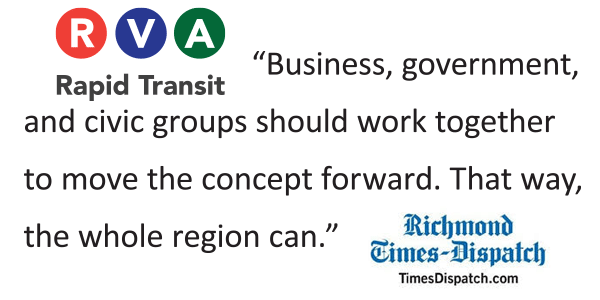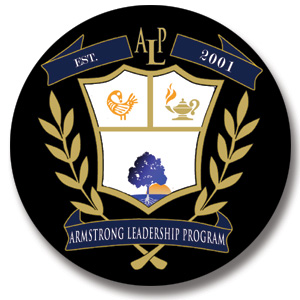In search of true wealth
The purpose of life is most of all in what God does, secondly in what we do together, and least of all in what we do as our own achievement.
Our American individualism turns those three things around.
People search mightily for achievement on their own, making it the first goal, and then are stunned when a lifetime of achievement is still hollow. There is nothing there, no audience, no love, no meaning, no purpose.
Somehow, in the desire to make sure we found ourselves, we lost ourselves. The answer to life’s call is not isolated achievement, but true community; not suppression or exaltation of self but offering of self; not inequality and hierarchy but cooperation and justice.
In the context of our time, this is the meaning of that powerful and incredibly enigmatic statement of Jesus: “He who seeks to save his life will lose it; but he who loses his life for my sake and for the Gospel will find it.” For the word “Gospel” substitute “the love that sets you free.”
It is so hard for persons trapped in the fantasy culture of individualized materialism to hear these words in any way that does not imply some form of self-destruction. It means, they imagine, a lemming-like procession of safe affluent suburbanites hurling themselves off the cliffs of their closeted subdivisions into urban ghettos, third world villages, and dangerous late night street scenes. It means people trapped in poverty being required to stay in poverty, and told it brings them virtue.
What is really true is that many Americans have a hard time even getting to the starting gate of the spiritual enterprise. The society individualizes and materializes achievement to such a degree that we feel we can only make it ourselves. And if we succeed, the affluence and concomitant desire for security it brings creates magnificent isolation: we cannot possibly build the relationships we need from the comprehensive platform of self-protection we have erected.
Each of us seems required to build his or her own tower, and the true community on which our lives depend is something we must add as extra credit. But the community of human beings is not extra credit for our lives. You don’t get there from the top of the tower. You get there at ground level. Community is the beginning, not the end. If we do not build it together, we have to rebuild it.
Worse than that, the individualized materialism on which our society has increasingly come to depend substitutes a collection of unrelated persons as a surrogate for community, demanding more and more resources to maintain the illusion. The only equality which unrelated persons of privilege can bring off is an equality which assumes their level of privilege and that of their colleagues as fixed. And therefore they propose, in charity, to take or develop additional resources so that others can come closer to their level.
But what if their level already exceeds the level of resources which could fairly be allocated to them? In that case, either the world must be more rapidly raped, or the resources of other individuals and nations must be further depleted — far enough away or culturally sufficiently removed to make their loss go unnoticed. Such is the history of the world’s imperial and colonial enterprises, and much of the economic seed of racism. Almost always it is hidden in self-deceptive rhetoric and denial.
The grand answer to the world’s material and social inequality is what we call reconciliation. Reconciliation is a word which suggests two things: equity and commonality. Both are important. Equity is a term of justice more than it is a term of numerical equality. It is a term of relationship. Equity between people includes fairness, respect, mutual concern, equality of opportunity, lack of exploitation, working together, and mutual benefit. For two disparate individuals or situations to be reconciled, they must be brought into some relationship which is proper, — equitable.
But the real surprise in reconciliation is commonality. What makes reconciliation ultimately work is its mutual benefit. Strangely enough, this was the principle on which Adam Smith — frequently misquoted to justify the most awful and greedy economic behavior — based his entire moral philosophy. What Smith said was this: We should not feel bad about the capitalist maximizing his profit if in so doing he benefits not only himself, but also his workers, his community, and his nation.
Sometimes that happens, and when it does we know that equity and commonality are more important principles in the area of material wealth than numerical equality. They are truly wonderful.
The real problem of capitalist economics — or of any economics, for that matter — is that the boundaries of commonality and equity are often the first to be abandoned. Some of the quickest ways to increase your own wealth are to deplete the common wealth, to refuse to contribute to the common wealth, to use political power to legislate against the common wealth, to control the market, or to prey upon the wealth of others. Check out the Old Testament prophets. One after another, they say this is why Jerusalem fell.
The real truth is that individualized materialism stifles meaning as fast as poverty stifles opportunity. The only way for anybody to win in this city or world is for God to win, and for everybody to win. The only ultimate satisfaction is service. The only true vocation emerges in the context of human need and equity.
The ministry of reconciliation rebuilds human community and establishes justice. Because we are so far away from health, it must be something God does in us to bring us back to himself, — to bring us back for and with one another, — to give us life that is indestructible and good.
The Rev. B. P. Campbell
Pastoral Director





Hi Ben,
I will call you Ben because I am connecting to you through Ayla Joyce. She and I hope to do ceremony on the Solstice with you, for the healing of Richmond. I expect to talk with her soon, but wanted to connect with you, also. Please email me, if only to indicate you received this note. Thanks, so much.
I graduated from Union Theological Seminary in VA, in 1980, and am now a retired ordained Presbyterian (PCUSA) minister. My current work is in healing, with Sound Therapy and Trauma Releasing. I work with people, creatures, and the land.
I look forward to seeing Richmond Hill, and meeting you.
Carol Gailey